War

Playing Soldiers
December 27, 1967
After the end of WW2 a blonde boy arrives at an orphanage made for the children of Partizans or people being killed in the war. The headmaster knows that the boy's parents were Nazis but conceals that fact from others, fearing violence by vengeful children. He invents the boy's life story, but the other children get suspicious.
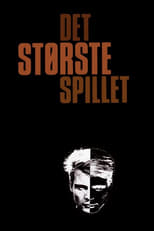
The Greatest Gamble
December 26, 1967
This is a movie about a local resistance group and its leader Gunvald Tomstad, in the southern part of Norway. Gunvald takes on a heavy burden as he pretends to be a devoted Hitlerjugend-leader and soon he becomes a trusted friend of the German occupants.
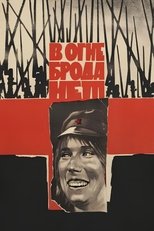
No Path Through Fire
December 25, 1967
A talented girl is trying to find happiness amidst the Russian revolution of 1917 and the civil war that split the nation.
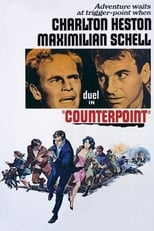
Counterpoint
December 22, 1967
In December of 1944, Lionel Evans, an internationally renowned American conductor, is on a USO tour with his 70-piece symphony orchestra in newly-liberated Belgium. While fleeing from a German counterattack, Evans and his orchestra members are captured by a Panzer division and taken to an old chateau in Luxembourg. Despite orders to execute every prisoner, General Schiller, an avid music lover, commands Evans to give a private concert for him.

Rita the Field Marshal
December 21, 1967
A waitress helps a scientist flee the Nazis.

Victory Over Death
December 13, 1967
World War II. Albania is under the Nazi occupation. The Germans capture two young girls and torture them to learn more about the communist movement.

Nostalgia
December 8, 1967
Unknown Woman...
December 5, 1967
In the fall of 1944, a fearless intelligence officer is captured by the Nazis.

The Seventh Companion
November 26, 1967
A portrait of the era of "Red Terror" during the civil war that followed the Bolshevik revolution, The Seventh Companion offers a character study in General Adamov (Andrei Popov), a law professor in the tsarist army, who is incarcerated by the Bolshevik secret police along with many other members of the bourgeoisie. Finally released into the new world of the Soviet Union, the resigned officer finds that he has lost everything from his old life except a mantel clock that he carries through the night from place to place, until he ends up back where he started.

The Invisible Battallon
November 24, 1967
A group of children from a small Slovenian town form a battalion to fight against the Nazi enemy.

The Enemy
November 20, 1967
During the Battle of the Bulge, word goes out to watch for German soldiers dressed as GIs. That's when black sergeant Chris Christiansen begins wondering if the GI who befriended him is really a friend--or the enemy.
Operation Child Hunt
November 17, 1967
A hidden gem produced at the height of the Hong Kong left-wing cinema. The Japanese army wants to force resistance leader Cheung (Bow Fong) to appear by capturing his family. Cheung's wife dies and, despite the protection by the nurse Yeung (Chu Hung) and other villagers, Cheung's daughter is captured. In the end Cheung's subordinate Lee Fu (Jiang Han) regroups with the resistance and saves the day, defeating the enemy and rescuing everyone. This film clearly references wartime productions in the mainland of China, with elements such as the Japanese taking hostages, resistance guerilla fighters, and the contrast between ‘heroes' and ‘villains' made obvious through camerawork and make-up designs. Street scenes shot in Macau merge seamlessly with studio scenes to recreate northern Chinese towns. War epics were not a strong suit of Hong Kong cinema. This film takes inspirations from Euro-American spy films and pays attention to character development and the mise-en-scène.

Eine Handvoll Helden
November 16, 1967
An episode from the war in 1806 when a small troop of Prussian soldiers digs in at a mill in order to defend itself against the overwhelming advance of the French army.

No Password Necessary
November 13, 1967
A spy game between Reds and Whites is in full motion during Russian Civil War.

A Bell for Adano
November 11, 1967
A U.S. army officer, the military governor of an Italian town during World War II, tries to reintroduce democracy, but his efforts are hindered by his commanding general. Placing his career in jeopardy, the governor decides to replace the town's bell, which had been looted by the Fascists.

The Ballad of the Commissar
November 10, 1967
The events unfold during the years of the Civil War. Commissar Fadeytsev once spared the life of a White officer, Chugureyev. Now, in the days of the counter-revolutionary uprising, Chugureyev, sent by his command to a remote island, encounters Fadeytsev, who is hiding in the house of a gamekeeper named Maksim. The gamekeeper is sentenced to hang, and the sentence is carried out. Fadeytsev manages to escape captivity, but being on an island, he knows full well that he won’t get far from the enemy...
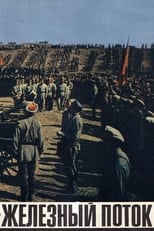
Torrents of Steel
November 5, 1967
The victorious path of the Taman army through areas occupied by the white army in the last days of the civil war.
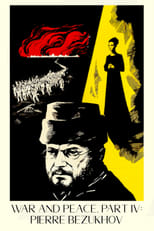
War and Peace, Part IV: Pierre Bezukhov
November 4, 1967
As Moscow is set ablaze by the retreating Russians, the Rostovs flee their estate, taking wounded soldiers with them, and unbeknownst to them, also Andrei. Pierre, dressed as a peasant, tries to assassinate Napoleon but is taken prisoner. As the French are forced to retreat, he is marched for months with the Grande Armée, until being freed by a raiding party. The French are defeated by Kutuzov in the Battle of Krasnoi. Andrei is recognized and is brought to his estate. He forgives Natasha on his deathbed. She reunites with Pierre and they marry as Moscow is being rebuilt.

The Red and the White
November 3, 1967
In 1919, Hungarian Communists aid the Bolsheviks' defeat of Czarists, the Whites. Near the Volga, a monastery and a field hospital are held by one side and then the other.

Two Deaths
November 1, 1967
A film adaptation of the story of the same name by Aleksandr Serafimovich about the participation of young people in the revolution and civil war.